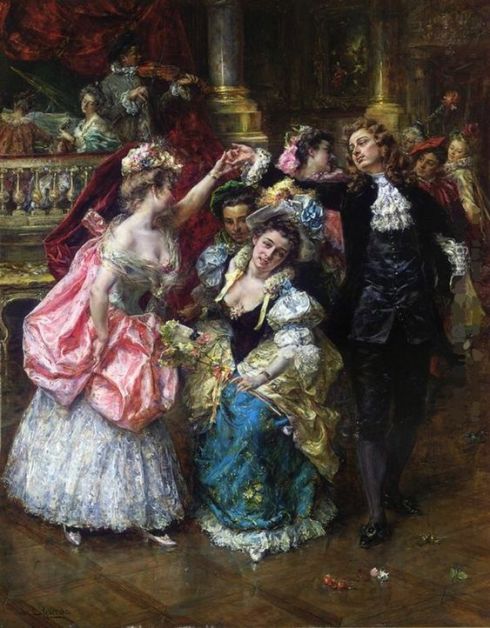Direction (sage study)
Direction is a sage study in the field of Drama, encompassing the creative and managerial process of overseeing all aspects of a dramatic production. Characters with the study interpret a playwright's text, guide actors in their performances, choreograph movements and gestures, make decisions about staging and design within the constraints of available resources and shape the overall artistic vision of the performance.
Productions grapple with constrained stage spaces, basic lighting, and minimal props. Directors ingeniously navigate these limitations, relying on symbolic props and adaptable sets to evoke diverse locations and atmospheres. Performances center on exaggerated gestures and robust vocal projection, crucial for ensuring audience comprehension in the absence of advanced stage technology and in intimate theater spaces. Rehearsal periods are shorter compared to modern standards, necessitating precise blocking to choreograph movements and ensure clear sightlines for the audience. The intimate theater settings foster closer interaction between performers and spectators, enabling directors to exploit this proximity to evoke emotional responses and engage the audience intimately.
While it's unlikely that a character would pursue this study in the context of traditional D&D, this nevertheless comprises a bardic pursuit that remains an option for both player and non-player characters. The possibility exists for these skills to add depth and versatility to the game world and the character's long-term goals.
Sage Abilities
The sage abilities below are those acquired by a character through the study, according to status.
Amateur Status
- Gain Patronage: enables the character to seek patronage for staging a performance, engaging the populace with promises of the spectacle, busking, lotteries or pressing the wealthy in order to gather coin. Includes good sense in spending the capital gained in order to actually make a performance happen.
- Performer Emotions: useful in preparing speeches made by other characters, either on the stage or in real life, in a manner that increases the apparent authenticity and emotionalism of the spoken words. In real terms, briefly raises the charisma of the director or another character when the speech can be rehearsed.
- Scene Coordination: grants the character the ability to organise persons in a tableau best suited to capture the attention of an onlooker, both on and off stage, in order to obtain a specific emotional response. Beyond stage performing, such could also be useful in setting up an ambush or gaining sympathy.
Authority Status
- Cultural Voice: the character is able to breathe new life into traditional scripts and theatrical forms, infusing them with fresh perspectives and innovative approaches while staying true to the essence of the era. Their visionary adaptations captivate audiences by presenting timeless stories in compelling, yet authentic, ways that resonate with the cultural sentiments of the period.
- Mentorship: showcases the director's ability to nurture and guide actors, playwrights and other creatives, imparting invaluable insights, techniques, and wisdom gained from experience. Functions similarly to instruction for a wide variety of artistic studies in performance, including literature, music, puppetry and more.
- Stage Production: gives the character complete knowledge in translating a given work to the stage, from blocking scenes, rewriting parts for actors, obtaining the best performances and managing technical issues. These productions are capable of giving a small amount of actual experience to viewers (from 0-2% of a character's existing total) once every three months, when a new production is seen for the first time.
Expert Status
- Theatrical Stewardship: the character is granted the privilege of owning and operating a theatre, once applied for and the conditions of the region being met regarding approved projects according to the realm's culture and religion. Thereafter, stage productions put on at that theatre may bestow from 0-6% of a character's existing total. In addition, the character gains prestige and influence resulting from the significance of the theatre in that location.
